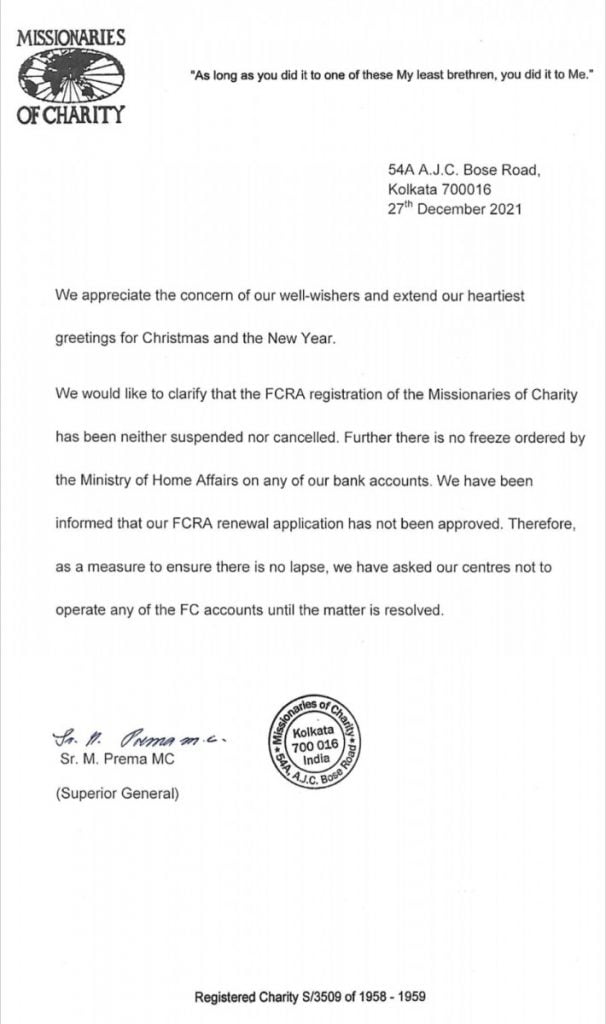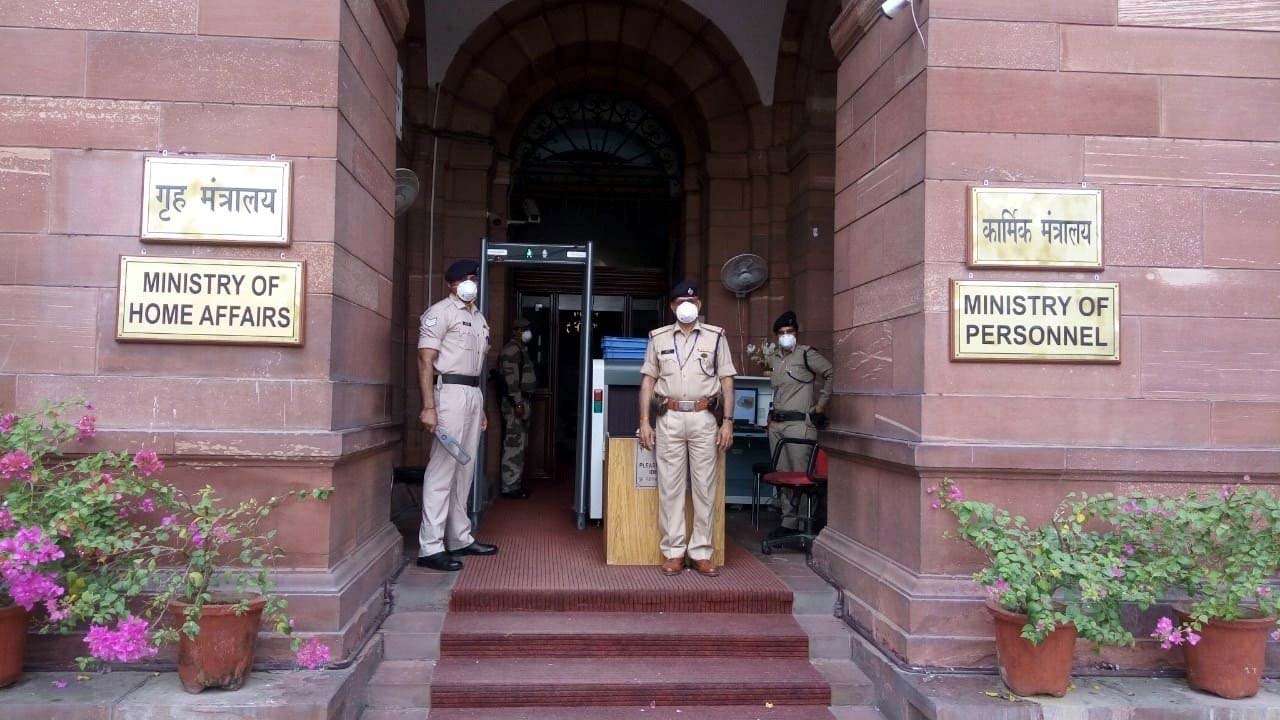Mother Teresa was an important figure in the field of charity in the 20th century. Her contributions to the field of charity were immense, although a few controversies are surrounding them. She helped the poor people of Kolkata with leprosy and other ailments. She set up an organization called the Missionaries of Charity to continue her work in the field of social work and help the poor of the country. The charity has carried on her legacy of assisting the impoverished in the country, but it made headlines on Monday. The authorities froze the organization’s bank accounts. Although the government clarified that it was done at the behest of the organization it still did cause uproar in the parliament. According to the government, the organization’s FCRA application was not renewed due to “audit irregularities.”
The FCRA or the Foreign Contribution (Regulation) Act, 2010 regulates foreign donations and ensures that such donations do not adversely affect internal security. This act was first enacted in 1976, later it was amended in 2010 when a slew of new measures was adopted to regulate foreign donations. The FCRA applies and is mandatory to all those associations, groups and NGOs who wish to receive foreign funding. The registration is initially valid for five years and it can be renewed subsequently if they comply with all the norms laid down by the FCRA.
Registered associations can receive foreign funding for their work in the fields of social, educational, religion, economics and culture. All the beneficiaries must file annual returns on the lines of Income Tax. In 2015, the Ministry of Home Affairs (MHA) made it compulsory for all the registered NGOs to give an undertaking that the acceptance of foreign contributions would not affect the sovereignty and integrity of India or affect the friendly relations with foreign states. Additionally, the undertaking stated that acceptance should not disrupt communal harmony. MHA also notified all the registered NGOs that they have to operate their accounts in either nationalized or private banks which have core banking facilities so that security agencies can access them on a real-time basis.
In September 2020, the Act was amended again. The latest amendment to the Act inserted a new provision that makes it mandatory for all NGOs to receive foreign funds through a single, designated branch at the State Bank of India’s New Delhi branch. It further stated that any other bank account can be linked to the main account but all foreign donations must be received in the SBI account.
The Act also made Aadhar a mandatory identification document for all the office bearers, directors and other key functionaries of an NGO. Furthermore, it capped the administrative expenses at 20% of the total foreign funds received against the earlier 50%. Additionally, the amendment further barred sub-granting by NGOs to smaller NGOs who work at the grass-root level.
In its latest annual financial returns filed by the Missionaries of Charities (MoC) on December 13, which runs into 76 pages, it had detailed the donations and expenditures incurred by the organization. The MHA on Monday stated that the renewal was refused on December 25th for not meeting the eligibility criteria. The MHA further stated that MoC had not requested to review the refusal.
According to the returns filed, MoC had received over Rs 75 crore donations from 347 foreign individuals and 59 institutional donors. The total bank balance stood at Rs 103.76 crore. The organization has 250 bank accounts across the country to utilize foreign funds.
It was reported that the State Bank of India informed the Union Home Ministry that the MoC itself had sent a request to the bank to freeze its accounts. As a result, the MHA’s position was clarified, stating that it did not freeze MoC’s account, but just declined to renew the FCRA application.
Meanwhile, Missionaries of Charity had released the following statement amidst the controversy:

References: The Hindu and the Hindustan Times.



















































































